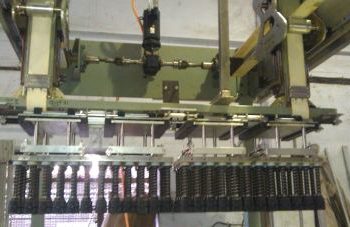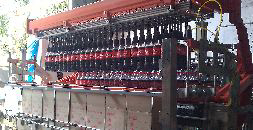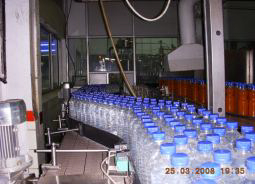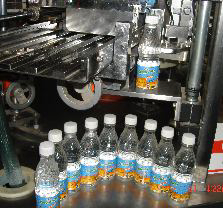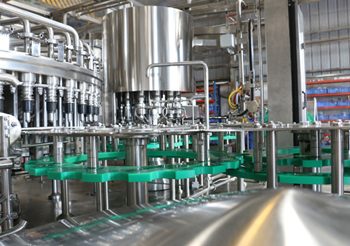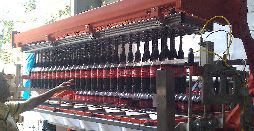
Introduction to Indian-Made Filling Machines
The world of manufacturing is evolving, and one trend that’s making waves is the rise of Indian-made filling machines. These innovative solutions are not just limited to local markets; they’re rapidly gaining traction on the global stage. As businesses seek efficient, reliable, and cost-effective machinery for their production lines, Indian manufacturers are stepping up to meet this demand with impressive offerings.
With a rich history in engineering and technology, India has become a hub for advanced manufacturing. The unique blend of affordability and quality makes these filling machines an appealing choice for industries worldwide. Whether it’s food packaging or pharmaceuticals, the versatility of these machines is capturing attention across borders.
Curious about what sets Indian-made filling machines apart? Let’s dive into the advantages that are propelling them into the spotlight on a global scale.
The Advantages of Using Indian-Made Filling Machines
Indian-made filling machines offer several compelling advantages that make them a preferred choice for many businesses. Their design caters specifically to the diverse needs of various industries, ensuring functionality and adaptability.
One significant benefit is their cost-effectiveness. These machines provide excellent value without compromising on quality or performance. Businesses can optimize their budgets while still acquiring advanced technology.
Furthermore, Indian manufacturers often emphasize customization options. This flexibility allows companies to tailor machines according to specific production requirements, enhancing efficiency in operations.
Durability stands out as another key advantage. With rigorous quality control measures in place, these filling machines are built to withstand extensive use and harsh conditions, reducing downtime and maintenance costs over time.
The combination of affordability, versatility, and robustness positions Indian-made filling machines as an attractive option in today’s competitive market landscape.
Cost-Effectiveness and Efficiency
Cost-effectiveness is a significant driving force behind the rising popularity of Indian-made filling machines. Manufacturers are increasingly drawn to these solutions because they offer competitive prices without compromising quality.
The efficiency of these machines plays an essential role in enhancing productivity. With advanced technology and streamlined designs, they minimize downtime and maximize output. Businesses can achieve higher production rates while keeping operational costs low.
Additionally, lower maintenance costs contribute to the overall appeal. These machines are designed with longevity in mind, requiring fewer repairs and replacements over time. This translates into substantial savings for companies.
Moreover, as industries seek to optimize their processes, Indian filling machines provide flexible options that meet unique requirements across various sectors. Their adaptability ensures that businesses can maintain high standards without breaking the bank.
Customization Options for Different Industries
Customization is a key factor driving the appeal of Indian-made filling machines. These machines can be tailored to meet the specific needs of various industries, from food and beverage to pharmaceuticals.
For instance, in the food sector, filling machines can handle different viscosities and packaging sizes. This flexibility allows manufacturers to switch between products seamlessly without losing efficiency.
In pharmaceuticals, precision is paramount. Indian manufacturers offer specialized options that ensure accurate dosing for liquid medications or powders. Such attention to detail enhances product safety and compliance with regulations.
Moreover, industries like cosmetics require unique designs for aesthetic appeal. Customization in this area can mean incorporating features that allow for better branding or user experience.
With these diverse options available, businesses are more inclined to invest in technology that caters specifically to their requirements while optimizing production processes.
Durability and Quality Control Measures
Durability is a hallmark of Indian-made filling machines. They are designed to withstand rigorous operations across various industries. Manufacturers prioritize robust materials and construction techniques, ensuring long-lasting performance even in demanding environments.
Quality control measures play a crucial role in production. Each machine undergoes thorough testing at multiple stages of the manufacturing process. This includes checks for precision, functionality, and safety features.
Moreover, adherence to international standards enhances their reliability. Many manufacturers invest in advanced technology to monitor quality metrics continuously. This commitment helps reduce downtime and maintenance costs.
Customers can trust that these machines will deliver consistent results over time. With regular updates and innovations incorporated into designs, Indian-made filling machines remain competitive on a global scale.
Positive Impact on the Indian Economy
The rise of Indian-made filling machines is not just a trend; it’s transforming the economic landscape. As manufacturers gain traction in the global market, they create numerous job opportunities across various sectors. This surge in employment bolsters local economies.
Moreover, increased production capabilities lead to higher exports. Foreign clients are now investing in Indian technology, which enhances the country’s reputation on international platforms.
Indian manufacturers also benefit from collaboration with global companies. These partnerships foster innovation and skill development, ensuring that India remains competitive.
Additionally, as domestic industries adopt these machines, efficiency improves significantly. This leads to reduced operational costs and increased profitability for businesses at home.
With a focus on sustainability and advanced technologies, Indian filling machine producers are setting benchmarks that resonate beyond borders. The positive ripple effects contribute greatly to overall economic growth while positioning India as a key player in manufacturing excellence.
Challenges Faced by Indian Filling Machine Manufacturers
Indian filling machine manufacturers operate in a dynamic environment but face several challenges that hinder their growth.
First, competition from established global brands creates hurdles. Many international companies have a strong presence and brand loyalty, making it difficult for local manufacturers to penetrate the market effectively.
Additionally, access to advanced technology can be limited. While India has made significant strides in innovation, some manufacturers struggle to keep pace with rapid technological advancements seen elsewhere.
Another challenge is regulatory compliance. Navigating complex regulations can be time-consuming and costly, impacting production timelines and profitability.
Skilled labor shortages present an ongoing issue. As manufacturing continues to evolve, finding workers who are trained in specialized machinery remains a pressing concern for many businesses seeking growth and efficiency.
How Indian-Made Filling Machines are Gaining Popularity in the Global Market
Indian-made filling machines are carving a niche in the global market, catching the attention of manufacturers worldwide. Their advanced technology and innovative designs cater to diverse industries.
The rise in demand can be linked to their ability to seamlessly integrate with various production lines. This flexibility appeals not only to large-scale producers but also small businesses looking for efficiency.
Another factor is the robust support network provided by Indian manufacturers. They offer training and after-sales services, ensuring buyers feel confident in their investment.
Moreover, international markets appreciate the commitment to sustainability seen in many Indian companies. Eco-friendly practices resonate well with global consumers who prioritize responsible sourcing and manufacturing processes.
As awareness grows about these advantages, more businesses are turning towards Indian-made options for their filling needs. The trend reflects a shift towards quality solutions at competitive prices on an international scale.
Case Studies of Successful Implementation
Case studies showcasing the successful implementation of Indian-made filling machines underline their growing significance in the global market. Many businesses have reported remarkable improvements after switching to these machines.
For instance, a beverage manufacturer based in Europe recently adopted an Indian-made filling machine for its production line. The switch not only boosted efficiency by 30% but also significantly reduced downtime during production cycles. This enhancement led to increased output and higher profitability.
In another case, a leading cosmetics company in North America faced challenges with inaccurate dosing from its previous equipment. After transitioning to an Indian-made solution tailored specifically for liquid products, they achieved precision levels that greatly improved product consistency and customer satisfaction.
These examples highlight how companies across various sectors are leveraging Indian technology to enhance operations and meet consumer demands more effectively. As industries increasingly recognize the value offered by Indian manufacturers, it’s clear that these filling machines continue to carve out a prominent space on the global stage.
